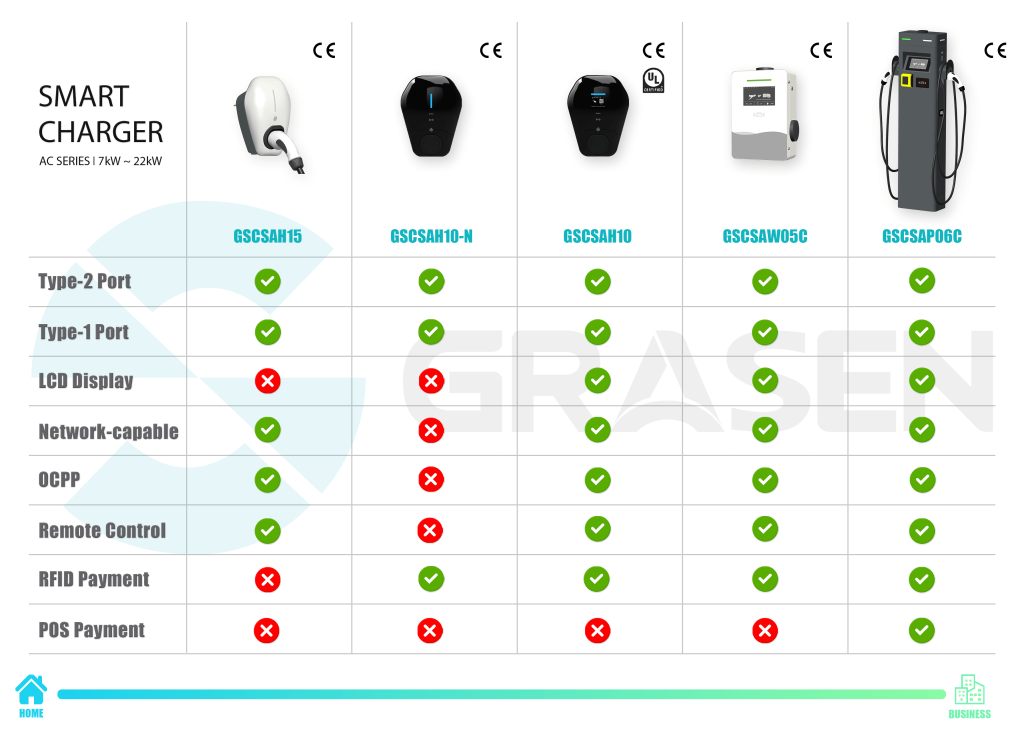Time:
With a wide range of AC EV chargers available, Grasen can help simplify your decision-making process by asking a few questions about your specific EV charging needs.
Below electric vehicle charger selection guide will provide information to help you find the most suitable AC EV chargers.
After identifying your unique electric vehicle charger requirements, it's important to explore the various feature options available. Some of the key factors to consider include:

Stand-alone or "dumb" electric vehicle (EV) chargers have no network access and are essentially just basic outlets with built-in circuitry for safe charging and communication with the vehicle.
Without network access, stand-alone chargers cannot process payment and are generally reserved for residential or fleet applications.
While these chargers lack the advanced features of networked charging stations, they can still provide a reliable and convenient charging option for EV owners.
Stand-alone chargers have lower installation costs, simpler designs, and no recurring fees for features such as payment processing and cloud connectivity. They may also be the only viable option in locations with limited cellular coverage, or for low-traffic sites where network charges surpass the cost of providing free access.
Networked Chargers add a variety of capabilities. For drivers, services may include payment options, real-time station location, and availability information, and options such as reservations, messaging, and summary reports. Site host services include payment management, customer support, station status, data reporting, and typically access to a network “dashboard”.
A service network provides supervision and support for one or more EV chargers. These services are available to both EV drivers and network administrators or site hosts, with varying fee structures targeted at each group.
One additional thing to consider with regard to networked chargers is whether or not they are compliant with Open Charge Point Protocol (OCPP). OCPP-compliant hardware and software are designed to function together regardless of manufacturer. Typically, this allows charging site hosts to mix and match charging stations while choosing the network provider of their choice.
The good news is that Grasen's AC chargers support connection with third-party CSMS, and we also offer customized charging software & management platform too.
In conclusion, this Electric Vehicle Charger Selection Guide - AC SERIES provides comprehensive information for consumers looking to make informed decisions about their charging needs. If you have any questions please feel free to contact us for a FREE consultation.
Submit Request